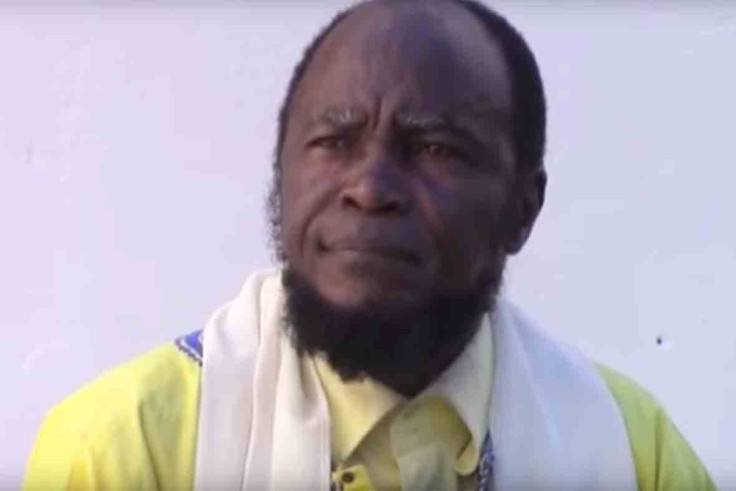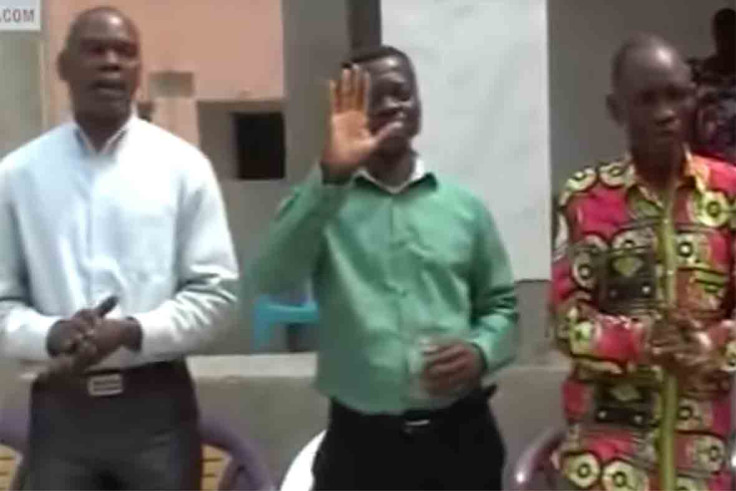Who are the Bundu Dia Kongo sect that wants to establish the Kingdom of Kongo?
Dormant for years, the secessionist sect from Kongo-Central region has taken up arms again.

The United Nations has expressed concerns over the deadly awakening of a separatist religious sect known as Bundu Dia Kongo (BDK) in the Democratic Republic of Congo (DRC).
Far from being a new group, the sect that had been inactive for years has taken up arms again. For months now, Congolese police have clashed with BDK adherents in their native Kongo Central province in the southwest of DRC, but the violence has recently spread to the capital, Kinshasa, several hundred kilometres away, marking a serious escalation in the armed group's activity.
IBTimes UK looks at the secessionist group established in the 1980s by a member of the Congolese national parliament, Né Mwanda Nsémi.
The spiritual leader of the sect known for his distinctive yellow robes, has been campaigning for greater independence of the generally ethnically homogeneous Kongo-Central region (west of Kinshasa) from the rest of the DRC.
In the Kikongo language, Bundu dia Kongo means "Kingdom of Kongo'' - a reference to Nsémi's desire to revive the ancient Kingdom of Kongo with its pre-colonial boundaries. For centuries, the kingdom flourished around the mouth of the Congo river, in an area that encompasses parts of today's Angola, Republic of Congo and Gabon, and reached its golden age in the XVI Century.
According to Thomas Serge Kivouele, who published a research paper on the sect for the Marien Ngouabi University of Brazzaville, the group's overall aim is the cultural restoration of the kingdom's people, the Bakongo.

The resource-rich region formerly known as Bas-Congo, is the only province in the DRC with direct access to the sea. Local reports highlight how Nsémi's BDK may find legitimacy in a frustration among Kongo-Central people, who are unsatisfied by budgetary returns from the province's contribution to the overall budget of the country.
Maô Battantu, an inhabitant from the province, referred to what the "marginalised" local people describe as an "injustice".
"At a time when the province is full of wealth and contributes enormously to the republican government in terms of budget (for roads, hospitals, schools, etc ...), its population is suffering from chronic unemployment and survives on subsistence agriculture. The few jobs that exist are occupied by those who come from elsewhere. Is there a shortage of shortage of white-collar workers in [Kongo-Central]?"
In 2008, the sect was suppressed during a military operation after a series of armed attacks against state officials led by BDK followers, who called on the local population to drive out the "non-natives" from the Kongo-Central province. Between 27 and 100 people were killed in the operation, dozens were arrested.
An opposition MP, Nsémi met with President Joseph Kabila in 2015, with whom he claims to have discussed the province's independence. "I am an archangel, a living ancestor. A divine dictator [....] the one who reins the lion, the man of the difficult situation. I did not come to discuss with pseudo-politicians but to impose my will on them. I am the enlightened guide. The black race must be blessed to become a great power. Every community in the country must have its president. All these presidents will form a presidium of the union of Ntimansi. Thus the problems of Central Africa will be solved by this presidium."
In December 2015, Kabila pardoned nine BDK members who had been sentenced to life imprisonment, effectively undertaking an historic rapprochement with Nsémi.
The amicability did not last long. The sect leader, who claims to have thousands of followers, resumed his vitriolic attacks against the president. In a video widely circulated on social media, Nsémi recently threatened the government, and urged people originating from outside Kongo-Central to leave the province.
In response to the footage, Congolese authorities accused Nsemi of "xenophobia" and said the leader of the "armed insurrectionist movement" had "insult[ed] the head of state".
Following recent clashes on 24 January, Félix-Prosper Basse, spokesman for the UN peacekeeping mission in the DRC (Monusco) told press: "We had not heard of this sect for some time, we see that there is a rebirth - the group that had been dormant has taken up arms again."

© Copyright IBTimes 2024. All rights reserved.






